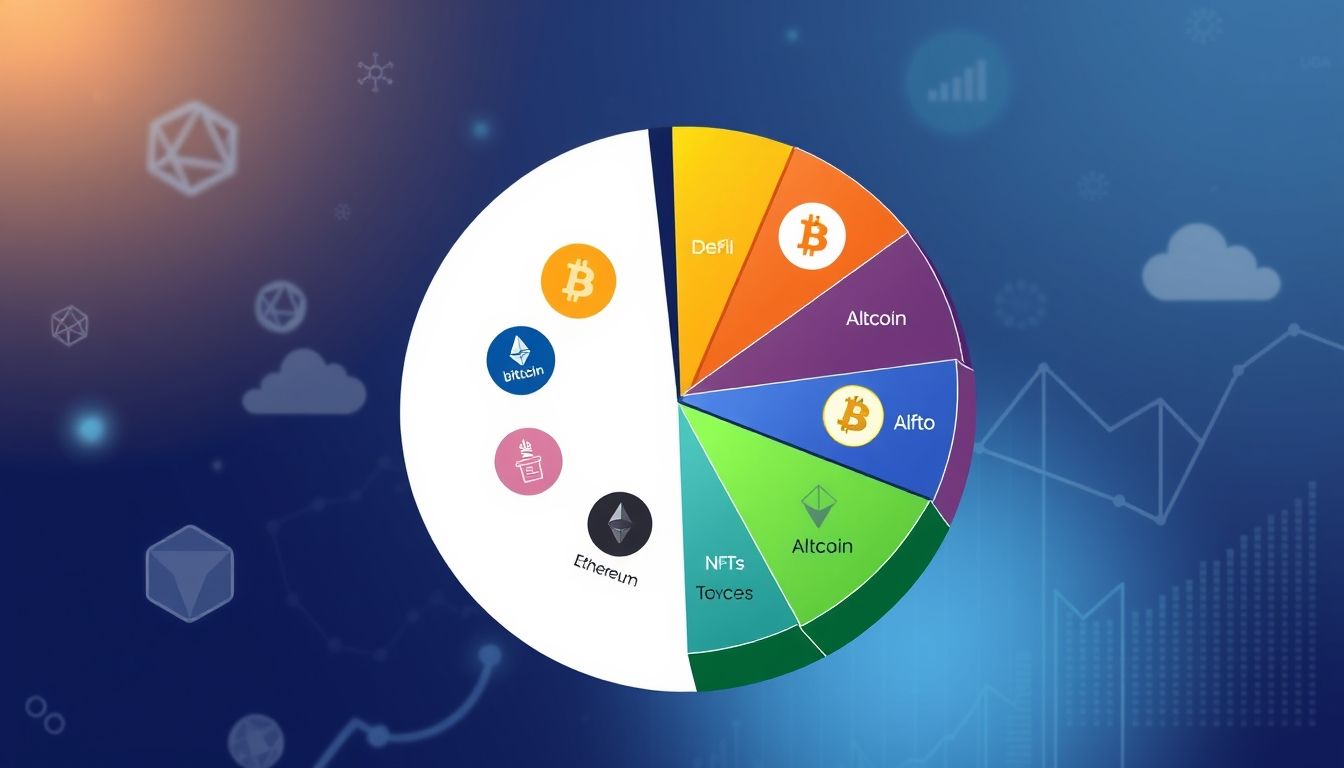Introduction to the World of Bitcoin: Opportunities and Challenges
Bitcoin, the decentralized digital currency that has revolutionized the financial world, has become a focal point for investors and technology enthusiasts alike. However, with its increasing popularity, the risks associated with buying and trading it also increase. This comprehensive guide aims to equip you with the knowledge and tools necessary to buy Bitcoin safely and confidently, whether you are a complete beginner or have some prior experience.
What will you learn in this guide?
- The basics of Bitcoin and how it works.
- Choosing the right trading platform.
- Creating a secure Bitcoin wallet.
- Different methods of buying Bitcoin (credit cards, bank transfers, etc.).
- Securing your Bitcoin investments.
- Avoiding common scams.
- Understanding taxes and regulations related to Bitcoin in your region.
Chapter 1: Understanding the Basics of Bitcoin
Before diving into the buying process, it is essential to understand what Bitcoin is and how it works. Bitcoin is a cryptographic digital currency, meaning it relies on encryption to secure transactions and control the creation of new units. Bitcoin is not controlled by any central bank or government, making it attractive to many.
What is Blockchain Technology?
Bitcoin is built on Blockchain technology, which is a distributed and immutable digital ledger. Every Bitcoin transaction is recorded in a "Block," and these blocks are linked together in chronological order, forming a "Chain." This technology makes it extremely difficult to forge or manipulate Bitcoin transactions.
Why do people buy Bitcoin?
There are several reasons why people buy Bitcoin, including:
- Investment: Many expect the value of Bitcoin to continue to rise in the long term.
- Hedge against Inflation: Some consider Bitcoin a store of value that protects against the erosion of traditional currencies due to inflation.
- International Transactions: Bitcoin can be used to conduct fast and cheap international transactions.
- Privacy: Although Bitcoin transactions are not completely anonymous, they offer a certain level of privacy compared to traditional banking transactions.
Chapter 2: Choosing the Right Trading Platform
A trading platform is where you will buy and sell Bitcoin. There are many platforms available, each with its advantages and disadvantages. It is important to choose a platform that meets your needs and provides you with security.
Key factors to consider when choosing a trading platform:
- Security: Ensure the platform uses strong security measures to protect your funds and personal information.
- Fees: Compare the fees charged by different platforms before making a decision.
- Ease of Use: Choose a platform that is easy to use, especially if you are a beginner.
- Payment Methods: Make sure the platform supports the payment methods you prefer.
- Supported Cryptocurrencies: If you plan to trade other cryptocurrencies in addition to Bitcoin, make sure the platform supports them.
- Reputation: Research user reviews and expert opinions on different platforms.
Examples of popular trading platforms:
- Binance: One of the largest trading platforms in the world, offering a wide range of cryptocurrencies and services.
- Coinbase: An easy-to-use platform suitable for beginners, available in many countries.
- Kraken: A platform known for its security and reliability, offering a variety of cryptocurrencies and advanced trading tools.
- BitOasis: A leading Arab platform, licensed and regulated in the United Arab Emirates, providing services to users in the Middle East and North Africa region.
Chapter 3: Creating a Secure Bitcoin Wallet
A Bitcoin wallet is where you store your Bitcoin. There are different types of wallets, each with a different level of security and convenience.
Types of Bitcoin Wallets:
- Hardware Wallets: Considered the most secure, as they store your Private Keys on a separate device not connected to the internet. Examples: Ledger Nano S/X, Trezor.
- Software Wallets: Applications or programs that you install on your computer or smartphone. Examples: Exodus, Electrum.
- Web Wallets: Wallets that you use through an internet browser. Less secure than hardware and software wallets, as your Private Keys are stored on third-party servers. Examples: wallets on trading platforms like Binance and Coinbase.
- Paper Wallets: A piece of paper printed with your Private Keys and Bitcoin address. Considered secure if stored in a safe place, but impractical for daily use.
Tips for choosing a secure Bitcoin wallet:
- Choose the right type of wallet for your needs: If you plan to store a large amount of Bitcoin, a hardware wallet is the best option. If you need to access your Bitcoin frequently, a software wallet may be more convenient.
- Enable Two-Factor Authentication (2FA): This feature adds an extra layer of security to your wallet.
- Keep a backup of your Private Keys: If you lose your Private Keys, you will lose access to your Bitcoin.
- Do not share your Private Keys with anyone: Your Private Keys are like the password to your bank account.
- Update your wallet software regularly: Updates usually include important security fixes.
Chapter 4: Different Methods of Buying Bitcoin
There are several ways to buy Bitcoin, each with its advantages and disadvantages. Choose the method that suits you based on your needs and budget.
Popular methods of buying Bitcoin:
- Credit and Debit Cards: A quick and easy method, but usually comes with higher fees.
- Bank Transfers: A cheaper method, but may take longer.
- Cash Payment: Some platforms allow you to buy Bitcoin with cash through local agents.
- PayPal: Some platforms support payment via PayPal.
- Other Cryptocurrencies: You can buy Bitcoin using other cryptocurrencies like Ethereum.
Tips for buying Bitcoin:
- Compare prices between different platforms: Prices can vary significantly.
- Consider the fees: Fees can reduce your profits.
- Start with a small amount: Do not invest more than you can afford to lose.
- Buy at regular intervals (Dollar-Cost Averaging): This strategy helps you reduce the impact of price fluctuations.
- Be wary of scams: Do not trust anyone who promises you guaranteed profits.
Chapter 5: Securing Your Bitcoin Investments
After buying Bitcoin, it is important to take steps to protect your investments from theft and fraud.
Tips for securing your Bitcoin investments:
- Use a secure Bitcoin wallet: As mentioned earlier, a hardware wallet is the best option for storing large amounts of Bitcoin.
- Enable Two-Factor Authentication (2FA): This feature makes it difficult for hackers to access your account.
- Do not share your Private Keys with anyone: Your Private Keys are like the password to your bank account.
- Be wary of Phishing emails: Do not click on suspicious links or provide personal information via email.
- Update your wallet software regularly: Updates usually include important security fixes.
- Consider using Cold Storage solutions: Cold storage means storing your Bitcoin in an offline wallet.
Chapter 6: Avoiding Common Bitcoin Scams
Unfortunately, the world of Bitcoin is full of scams. It is important to be aware of these scams and take steps to protect yourself.
Types of common scams:
- Ponzi Schemes: These schemes promise you high guaranteed profits, but they actually rely on attracting new investors to pay profits to old investors.
- Phishing Scams: Scammers send emails that look like they are from legitimate companies, asking you for personal or financial information.
- Fraudulent ICOs (Initial Coin Offering): An ICO is a way to raise money for new cryptocurrency projects. Some ICOs are scams designed to steal investors' money.
- Social Media Scams: Scammers post false advertisements on social media promising high guaranteed profits.
- Fraudulent Trading Bots: These bots promise you to make automatic profits from Bitcoin trading, but they are actually ineffective or designed to steal your money.
Tips for avoiding scams:
- Be wary of anything that sounds too good to be true: If an offer sounds too good to be true, it is probably a scam.
- Do your own research: Before investing in anything, do your own research and make sure you understand the risks.
- Do not trust anyone who promises you guaranteed profits: There are no guaranteed profits in the world of Bitcoin.
- Do not share your personal or financial information with anyone you do not trust: Be careful about who you share your information with online.
- Report scams: If you think you have been scammed, report it to the appropriate authorities.
Chapter 7: Taxes and Regulations Related to Bitcoin
Taxes and regulations related to Bitcoin vary from country to country. It is important to understand the laws in your region and comply with them.
Taxes on Bitcoin:
In many countries, Bitcoin is treated as a capital asset, meaning you will pay taxes on the profits you make from selling it. You may also need to pay income taxes if you earn Bitcoin through mining or staking.
Regulations related to Bitcoin:
Regulations related to Bitcoin are constantly evolving. In some countries, Bitcoin is strictly regulated, while in others, it is still unregulated. It is important to follow regulatory developments in your region.
Tips for dealing with taxes and regulations:
- Consult a tax professional: A tax professional can help you understand the laws in your region and make sure you comply with them.
- Keep accurate records of your Bitcoin transactions: This will make it easier for you to calculate the taxes due.
- Stay up to date with regulatory developments: Follow the news and regulatory developments in your region.
Chapter 8: Bitcoin in the Arab World: An Overview
The Middle East and North Africa (MENA) region has witnessed significant growth in the adoption of digital currencies, including Bitcoin. There are several reasons for this increasing interest, including:
- High rates of internet and smartphone usage: Easy access to the internet and smartphones makes it easy for people to buy and trade Bitcoin.
- Economic and political instability: In some countries, Bitcoin is considered a safe haven from inflation and political instability.
- Financial transfers: Bitcoin can be used to make fast and cheap international financial transfers.
- Technological innovation: There is a growing interest in technological innovation in the region, and Bitcoin is considered part of this innovation.
Challenges of adopting Bitcoin in the Arab world:
- Unclear regulations: In many countries, regulations related to Bitcoin are still unclear, creating uncertainty for investors.
- Security concerns: There are concerns about the security of Bitcoin and scams.
- Price volatility: Bitcoin price volatility can be intimidating for new investors.
- Limited awareness: Awareness of Bitcoin is still limited in some areas.
Chapter 9: The Future of Bitcoin: Predictions and Trends
The future of Bitcoin is uncertain, but there are many predictions and trends that can help us understand what the future may hold.
Predictions:
- Increased Institutional Adoption: Many large companies and financial institutions are expected to adopt Bitcoin in the future.
- Infrastructure Development: The Bitcoin infrastructure is expected to be developed, making it easier and safer to use.
- Increased Regulation: Governments are expected to increase regulation of Bitcoin, which will help protect investors and reduce risks.
- Technological Innovation: Technological innovation is expected to continue in the world of Bitcoin, leading to the development of new applications and use cases.
Trends:
- Decentralized Finance (DeFi): DeFi is a movement aimed at creating a decentralized financial system based on Blockchain technology.
- Non-Fungible Tokens (NFTs): NFTs are unique digital assets that represent ownership of items such as artwork, music, and collectibles.
- Metaverse: The Metaverse is a virtual world where users can interact with each other and with the digital environment.
Chapter 10: Additional Tips for Beginners in the World of Bitcoin
Here are some additional tips that can help you on your journey in the world of Bitcoin:
- Be patient: Learning Bitcoin takes time. Don't expect to become an expert overnight.
- Be curious: Continue to learn and read about Bitcoin and Blockchain technology.
- Join Bitcoin communities: There are many online communities where you can connect with other Bitcoin enthusiasts and ask questions.
- Don't be afraid to make mistakes: Everyone makes mistakes. Learn from your mistakes and keep moving forward.
- Enjoy the journey: The world of Bitcoin is exciting and rewarding. Enjoy the journey!
Disclaimer: This guide is for educational purposes only and should not be considered financial advice. Before investing in Bitcoin, you should consult a qualified financial professional and do your own research.




